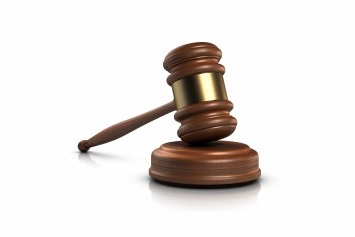Even with more than 4 decades of experience in government and industry, William Barr, President Donald Trump’s choice to be the nation’s next attorney general (AG), does not have much of a public record on environmental law and regulation.

This has not stopped liberal environmental groups from voicing their opposition to Barr. Their position appears to be based primarily on an op-ed published last year in The Washington Post in which Barr and his coauthors praised Jeff Sessions as an “outstanding” AG. While Sessions also did not push environmental issues to the forefront of the Department of Justice’s (DOJ) agenda, he did issue several directives to the DOJ’s Environmental and Natural Resources Division (ENRD) that appear to favor businesses with compliance problems. Environmental groups have called for Barr to publicly reject one of these memos dealing with third-party settlements.
Fair and Evenhanded
Responding to a written question about corporate offenders, which was sent to him following his nomination hearing in the Senate, Barr said he is “committed to the fair and evenhanded enforcement of the laws within the Department’s jurisdiction, including by assessing appropriate penalties to punish and deter unlawful conduct”.
Background
Barr is currently Of Counsel in the Washington, D.C., office of Kirkland & Ellis LLP; this is Barr’s second tenure with the firm. His primary work appears to be advising corporate clients on enforcement and regulatory matters. The firm’s online bio states that Barr “personally argued on behalf of the industry in numerous cases in the federal courts of appeals, and two cases before the Supreme Court.”
Barr served as a U.S. AG from1991 to 1993 under President George H.W. Bush. Before that, he was deputy AG (1990–1991) and assistant AG in charge of the Office of Legal Counsel (1989–1990). From 1973 to 1977, Barr worked as an analyst and assistant legislative counsel in the Central Intelligence Agency.
Sessions’ Memo
The environmental memo, which was issued by Sessions in June 2017, prohibited any U.S. attorney from entering into any agreement on behalf of the United States in the settlement of federal claims or charges that directs or provides for a settlement payment to nongovernmental third parties that were not directly harmed by the conduct.
“When the federal government settles a case against a corporate wrongdoer, any settlement funds should go first to the victims and then to the American people—not to bankroll third-party special interest groups or the political friends of whoever is in power,” said Sessions.
One of the Judiciary Committee’s follow-up questions to Barr stated: “All too often, marginalized and disenfranchised communities bear the brunt of environmental harms caused by violations of federal clean air and water laws. Supplemental Environmental Projects, or SEPs included in DOJ settlements with polluters, have proved to be valuable mechanisms to accomplish environmental justice in these communities. Will you commit to ending the policy at DOJ of banning third party settlements in environmental enforcement cases?” This question is virtually identical to a paragraph in a January 10, 2019, statement from Earthjustice, which expressed “serious concerns” about Barr’s nomination.
In his written response, Barr said he was not familiar with all the circumstances referenced in the question and, therefore, was not in a position to make a commitment at this time.
“However,” added Barr, “it is my understanding that the Environment and Natural Resources Division has issued guidance on the implementation of Attorney General Sessions’ memorandum in environmental cases. That guidance indicates that the Sessions memorandum did not change preexisting policy regarding SEPs, as it ‘does not prohibit, as part of a settlement, a defendant from agreeing to undertake a supplemental environmental project related to the violation, so long as it is consistent with EPA’s Supplemental Environmental Projects (SEP) Policy, which already expressly prohibits all third-party payments.”
Dominion Energy
Barr has also raised red flags among environmentalists because he is on the Board of Directors of Dominion Energy, an electric power company that services customers in the Midwest, Northeast, and Southeast. Dominion is currently trying to obtain approval of a 600-mile gas pipeline that would carry hydraulically fractured natural gas from West Virginia to Virginia and eastern North Carolina. The project is opposed by environmental groups. Dominion also has 11 coal ash ponds at four facilities and six coal ash landfills at five facilities. After years of resisting calls to close these facilities, Dominion recently agreed to excavate four sites that pose risks to the Chesapeake Bay Watershed.
